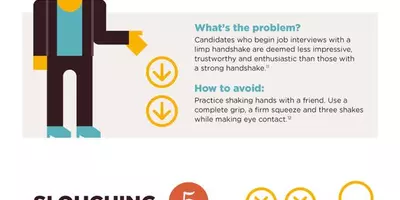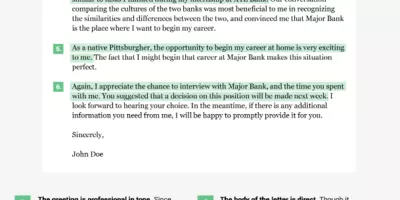
May 12, 2017 ● Peter Jones
How Your Body Language Can Get You (Or Lose You) That Job
Body language is important—it's really no exaggeration to say that it can make or break you in the job interview situation. Your nonverbal communication in these situations is almost as important as what you say.
Study up and learn these tips for how (and how not) to use your body language to help, rather than hurt you on the job hunt.


